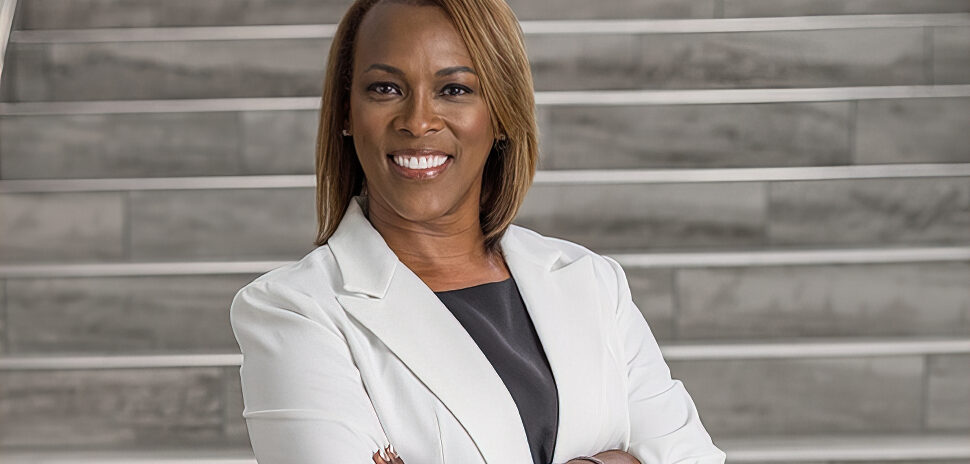Moved by the murder of George Floyd last year, more private sector leaders and corporations made public statements against racism and racial inequalities.
But a December 2020 McKinsey & Co. report shows public statements have not translated into systemic actions that close the gap in racial inequalities. One-third of the top 1,000 largest U.S. companies made public statements against racism and racial inequality, 22 percent turned public statements into donations and investments, and 18 percent made internal changes in board composition, staffing and product development.
“And that is honestly the concern today, that all of these highly visible announcements this past year have not yielded deeper systemic reforms that impact the lives of real people and real places,” said Amy Liu, Vice President and Director of the Brookings Metropolitan Policy Program.
During the DRC’s Tuesday, June 22 inaugural State of Diversity, Equity & Inclusion (DEI) presented virtually by Axxess and sponsored by Wells Fargo, Liu discussed the findings of her report: From Commitment to Action: How CEOs Can Advance Racial Equity in Their Regional Economies. Liu’s research is backed by examples of regional initiatives aimed at closing the gap in racial economic inequalities.
“We actually need more authentic changes in corporate practices, not just more philanthropy,” Liu said. “And while corporate giving is certainly helpful, it is insufficient.”
A recent survey of Black Americans found that economic opportunity and mobility is the number one issue in racial exclusion, more pressing than the presence of police brutality, according to Black Futures Lab.
“Black workers’ wages are simply too low to support their families,” Liu said. “And the prevalence of low wages is not a result of low education. In fact, Black and Hispanic head of households who do have a college degree have dramatically less net wealth than those of white households.”
Liu’s research provides a model framework for CEOs to drive action and meaningful change to more racial equity and a more inclusive economy.
A framework for action
After requests from CEOs for ways to improve economic mobility and wealth creation for communities of color, Liu and her colleague Reniya Dinkins produced the report that focuses on a framework for CEOs to effectively advance racial equity.
The three sets of actions include: adopt internal corporate changes, act collectively with other CEOs in regions around quantifiable goals and actions, and encourage leadership from business-led civic organizations.
From Indianapolis to Columbus, Liu illustrated examples of companies that implemented internal practices to correct racial injustice issues in their organizations.
Actions include increasing wages for lowest paid workers, promotion ladders, and eliminating use of credit scores in pricing models to eliminate inherent bias that disproportionally penalize marginalized groups due to access to fair lending.
“Now imagine what you could do as a coalition of CEOS,” Liu said. “We argue that it’s really hard to change the structure of opportunities for large numbers of workers and families by yourself as an individual company or through ad hoc disconnected actions.”
Regional CEOs leading in partnership with nonprofits and the public sector should commit to regional KPIs for their companies, civic strategies, and policies that together could create large scale change toward a racially inclusive economy.
“Growth has to come from increase in the productivity of existing workers and industries, not from business attraction. That’s prosperity.” Liu said. “That growth and prosperity has to result in better wages and opportunities for working, including closing disparities by race and space. That’s inclusion.”
The Dallas Region ranks of 11th out of 53 largest metro areas and is producing modest prosperity but ranks 30th in racial inclusion because the gap in earnings between white workers and workers of color continues to widen, according to the 2021 Brookings Metro Monitor. Additionally, Dallas ranks 46th in geographic inclusion, which measures neighborhoods and median household income gaps.
“Where you live matters, and where you live impacts economic mobility and the wealth and equity you can accumulate in your home, and therefore wealth creation,” Liu said.
In response to the rankings, Liu said Dallas area CEOs should work together to move the needle in three areas: hiring more Black and Hispanic talent in leadership roles and in-demand tech jobs, committing to expand supplier diversity with minority-owned firms, and creating community wealth by investing in overlooked neighborhoods to close the gap in geographic inclusion.
Liu provided examples of various regional CEO groups from Minnesota to Washington that have formed and are developing strategies to tackle racial inequities in their own communities.
“It matters because it is in cities, it is in metropolitan areas like Dallas where opportunity is found and where opportunity is created,” Liu said. “CEOs can use their influence as board members of chambers, economic development groups, or other public private partnership groups to ensure that the staffs of these powerful economic shaping civic organizations are doing their part to advance racial equity and economic competitiveness.”
![]()
Get on the list.
Dallas Innovates, every day.
Sign up to keep your eye on what’s new and next in Dallas-Fort Worth, every day.






























